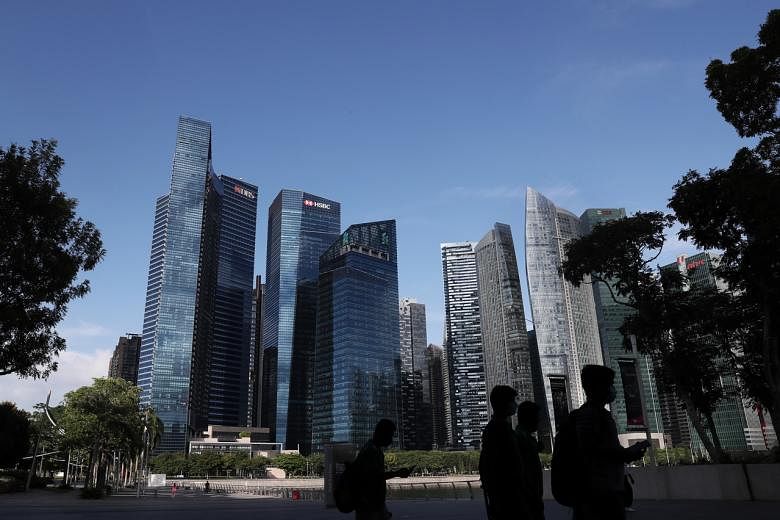SINGAPORE (THE BUSINESS TIMES) - About a quarter of organisations in Singapore plan to introduce or continue with salary freezes in 2021, a tad fewer than the 30 per cent that paused wage increments this year.
As for pay cuts, about 3 per cent of employers said they intend to implement them next year, compared with the 29 per cent who made salary reductions this year.
However, most employers are taking a wait-and-see approach, as they continue to tread with caution on salary increments while navigating the impact of the coronavirus pandemic.
That's according to findings released on Thursday from Mercer's annual Total Remuneration Survey, which polled 992 companies across 16 industries in Singapore this year.
The overall salary increase projected for 2021 in Singapore will soften slightly to 3.5 per cent, compared to 3.6 per cent this year, the study found.
"Businesses remain cautiously optimistic about the future and are considering more holistic talent strategies to energise their employees in the new shape of work," Mercer chief executive officer for Singapore Peta Latimer said, adding that some are rolling out additional incentives, for instance.
"Leaders are also looking ahead to attract and retain talent required to accelerate business digitalisation," Ms Latimer noted.
Salaries for the banking and finance sector as well as the high-tech sector are expected to increase at a stable rate in the year ahead.
The logistics and consumer goods industries will likely see slightly bigger increments of 3.3 per cent and 3.5 per cent respectively, compared to the increases of 3.1 per cent and 3.4 per cent this year.
This "correlates with a shift in consumer purchasing behaviours to online", said Mercer career products leader for Singapore, Kulapalee Tobing.
In contrast, wage growth is expected to slow in the life sciences, real estate, chemicals and lifestyle retail sectors next year. Employees in lifestyle retail may experience the sharpest dip in increments, with salaries rising 2.9 per cent in 2021 compared to the 3.3 per cent increase in 2020.
Ms Tobing noted that the prediction of a smaller salary growth in the lifestyle retail industry was also unsurprising, given the shift to online purchasing behaviours, lower discretionary spending capacities and reduced leisure activity due to the pandemic.
This year, base salaries at the management and executive levels inched up by 2 per cent and 1.2 per cent respectively from 2019. That's a much slower growth than last year's 6.8 per cent boost for management and 7.1 per cent jump for executives.
Employers are also facing intensifying competition for talent to support the digitalisation of their businesses.
The most in-demand are data scientists, IT solution architects, business intelligence analysts and cybersecurity engineers, Mercer's poll found.
Roles that support digitalisation efforts will attract salary premiums, especially at senior and specialist levels, compared to the general market.
For example, specialists who have capabilities in cybersecurity incident-response analysis are expected to receive wages that are 33 per cent higher than the median annual base salary, while specialists in robotic process automation will get a 30 per cent premium over the median level.
Meanwhile, many companies in Singapore are focusing on bumping up incentives and benefits to employees as well as redesigning the work experience.
About three in 10 of respondents said they are looking to add or expand telemedicine or digital care to their health programmes next year.
Half of the employers surveyed indicated that they will provide or reimburse remote-working expenses such as Internet bills, laptops and mobile phones. They are also considering giving more flexibility for onsite and remote working.
A growing number of Singapore banks - which are among the largest employers in the country - will make flexible work arrangements a permanent fixture for their staff, The Business Times reported this week.
DBS announced a slew of new practices for its 29,000-strong workforce, including the option to work remotely up to 40 per cent of the time and a formal job-sharing scheme. UOB will institute a two-day work-from-home policy, while Maybank Singapore has plans to adopt a hybrid working model.

